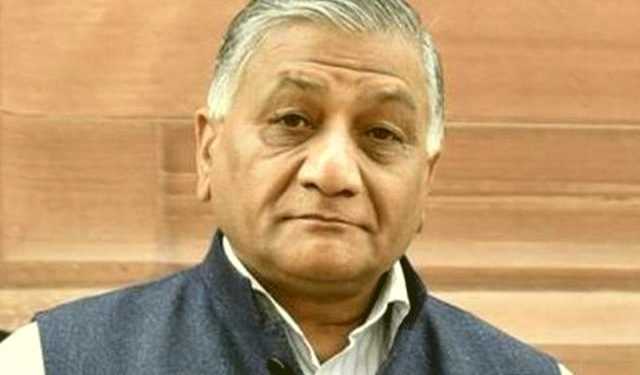In a historic move, General VK Singh, minister of state for external affairs visited North Korea and met the top leadership of the country. The minister reached Pyongyang on Wednesday and held talks with his North Korean counterpart. The surprise development took place on May 15-16 as reported by Koren newspaper Rodong Sinmun. According to statement released by the ministry of external affairs, VK Singh met with DPRK vice president Kim Yong Dae as well as the foreign minister of North Korea. The meetings included a range of issues covering political, regional, economic, educational and cultural cooperation between the two countries.
#BREAKING: For the first time in two decades, an Indian Minister visits North Korea. Development comes ahead of Trump-Kim summit in Singapore on June 12. MoS MEA General VK Singh reached North Korea on Tuesday, will hold talks today. MEA is tightlipped on the entire development. pic.twitter.com/v4kUAZOAfW
— Aditya Raj Kaul (@AdityaRajKaul) May 16, 2018
The fact that the North Koreans were prompt to interact with India after North Korea became a regular part of the international community all over again, highlights the undisputed global respect that India commands. No one can take India lightly in the current circumstances and all nations, including North Korea, want to secure good diplomtic relations with India. What is remarkable is how Indian diplomats and ministers in charge of the foreign ministry under the Modi government never leave anything to chance and seize every opportunity coming their way. India is not only being hailed as the driving global force and a bright spot in a dull world economy but it also acting as a dominant global leader. The moment a country starts displaying strong leadership and is being followed by others as such, it is an obvious sign of that country leading the course of international relations.
India’s emergence is highlighted not only about how General VK Singh was welcomed by North Korea but also the substance of the talks from both sides. DPRK officials tried to take India into confidence as it discussed recent peace initiatives with South Korea as well as the prospective talks with the United States. However, General VK Singh took a firm stand and made clear India’s objections regarding DPRK links with India’s hostile neighbour Pakistan. Like a firm leader, India represented by its minister of state for foreign affairs General VK Singh, voiced its concerns openly. There have been serious issues regarding claims of nuclear proliferation involving North Korea in India’s neighbourhood. However, DPRK made it clear that as a friendly country, North Korea will never allow any such activity that goes against India’s interests. This indicates that India has reached such a global status that no one can afford not to maintain warm diplomatic ties with India.
The way India is being given increased importance was unimaginable four years ago before the Modi government came at the helm of affairs. India has become such an important part of international relations that whenever a significant international event takes place, India immediately occupies the centre-stage. Propelled by a rapid stride in economic growth and a new found confidence, India has become an important stakeholder in global events. This explains in part why North Korea immediately sought to strengthen ties with India, once it revived from the massive condemnation it faced due to open defiance of UNSC norms. Under the Modi government, India has managed to make diplomatic breakthroughs where it was least expected. Even in the recent past, it would have been difficult to expect that North Korea will make all efforts to clear insecurities and doubts that India harbours regarding the claims of Pakistan-Korean nexus. This visit will go down in history as a statement of India’s emergence as the central force of international relations.
























